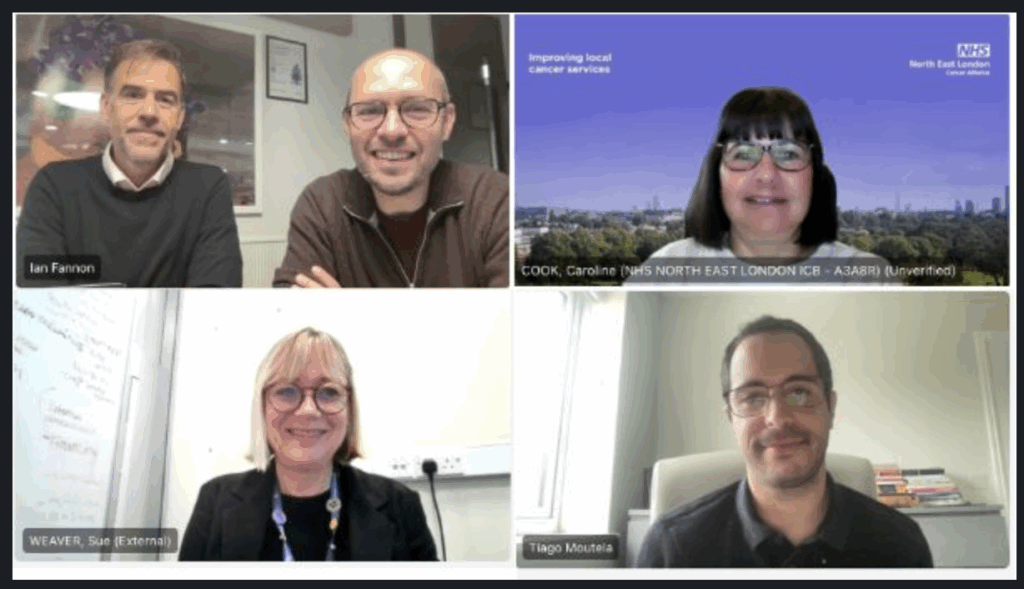Citizen-led commissioning: how can the public help ensure public health interventions work?

A huge thank you to all the speakers, panellists, and attendees who joined our recent webinar exploring the power of citizen-led commissioning in public health. Held in partnership with the Behavioural Science and Public Health Network (BSPHN), the session brought together leaders and practitioners to share real-world examples of co-design, co-production, and participatory research, showcasing how these approaches can transform the relevance, reach, and impact of health services.
Our host, Ian Fannon, opened by emphasising the importance of designing public health interventions that reflect real community experiences and set the stage for a session filled with practical insights. Paul Chadwick, CEO of BSPHN, highlighted a central challenge: people are far more likely to resist changes imposed on them than those they help shape. Many well-intentioned public sector interventions have fallen short due to a lack of genuine engagement. Speakers then shared examples of how meaningful involvement and deep listening can drive real change.
Learning from Gloucestershire: deep listening and co-production
Sue Weaver, Head of Commissioning for Public Health and Communities at Gloucestershire County Council, shared reflections from over 30 years in the sector. She made a strong case for citizen-led approaches, noting that early and meaningful engagement leads to more effective interventions.
Two case studies illustrated this:
- Falls Prevention for Older People: Using the COM-B model, her team co-designed communications and resources like “stand up” reminder cards. Over 200 older people were trained as community champions, resulting in increased awareness and behaviour change.
- Weight Management: A “structural resilience model” triaged families based on readiness and capacity for change, ensuring support was tailored and ethical. Sue stressed the need for holistic, person-centred approaches that respect individual circumstances.
Sue’s key takeaway: If interventions and service reviews aren’t person-led, they’re not really worth doing.
North East London: co-production in action
Caroline Cook, Early Diagnosis Programme Lead at North East London Cancer Alliance, shared how her team embedded co-production into campaigns for diverse and underserved communities. Community feedback shaped every aspect of their breast screening campaign for LGBTQ+ groups, ensuring people felt represented.
She also discussed outreach for womb and ovarian cancer awareness, where real women’s stories and hyper-local approaches proved more effective than traditional campaigns. She emphasised that barriers to engagement often stem from how services are delivered, not from the communities themselves, noting, “People are not hard to reach. We are just not very good at reaching them.”
Caroline’s key takeaway: meaningful engagement means listening, adapting, and making sure everyone feels seen and heard.
Claremont: Practical methods for genuine engagement
Dr Tiago Moutela challenged “tick box” consultation, advocating for genuine empowerment. He described co-designing smoking cessation services with Gloucestershire County Council, identifying what was working, then partnering with community ambassadors to reach people in informal settings like shops and school gates. “We placed the emphasis on an informal approach blended with some behaviourally informed strategies… just to be human and to connect with them on a human level”.
Tiago also detailed the creation of a citizens’ panel for North East London’s cancer health inequality strategy, ensuring those most affected were at the centre of decision-making. “There was a strong focus on the most deprived 20%… bringing them into the process, to have these conversations”. Through a series of sessions, the panel and team are working towards a prioritised action plan that blends community insights with system expertise, showing how early and sustained engagement can lead to more relevant, effective, and inclusive public health interventions.
Tiago’s key takeaway: True co-production means involving communities from the beginning – designing with them, not for them.
Key themes from the panel
Various themes emerged, reflecting both strategic insights and practical lessons from applying citizen-led approaches in public health:
- Trust and Feedback Loops: Listening, acting, and communicating back.
- Compensating Participation: Fair recognition of lived experience.
- Bravery and Creativity: Bold thinking and bridging professional and personal perspectives.
Thank you again to our speakers for sharing their expertise, and to our attendees for their thoughtful questions. If you missed the live session or want to revisit the insights, the full webinar recording is available on YouTube by clicking here.
Upcoming Events
If you found this session valuable, don’t miss our upcoming events exploring related themes in public health, behavioural science, and community engagement:
- Creating a society that values care [23 Sept. 12pm-1.30pm]: exploring shared challenges across social care and childcare, and how narrative change can drive progress. For more info and registration click here
- The science behind scarcity [23 Oct. 9.30am-10am]: a bite-size session unpacking how scarcity of time and money affects behaviour change and what we can do about it. For more info and registration click here
- BSPHN Conference 2026 [9-10 March 2026]: Please save the date for the 2026 BSPHN Conference on March 9-10 in Leicester. The theme is Behavioural Science and Complexity.
